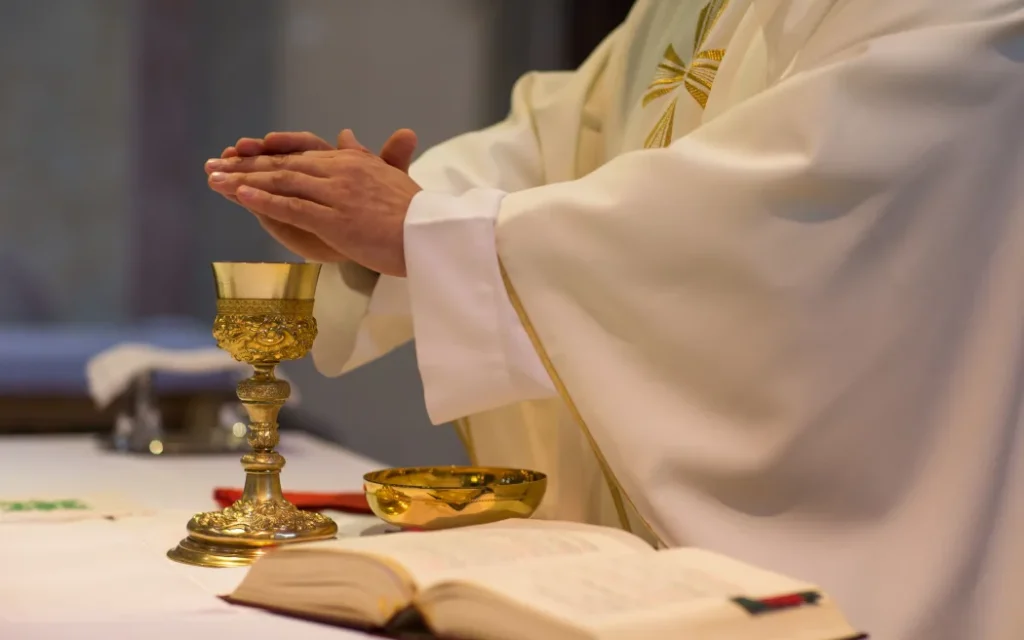Abuse in Care: Police prosecuted fewer than 1 in 10 referred cases
Police have prosecuted fewer than one in ten of the cases referred from the Royal Commission of Inquiry into Abuse in Care.
The sexual harm helpline can be accessed free, 24 hours a day, 7 days a week by phone, text, website, online chat and email.
The Catholic Church has apologised again to survivors of abuse in its care, accepting most of the Royal Commission's findings but not fully accepting several others.

However, a survivor of abuse at a Catholic school has called the response “heart-breaking and appalling”, and said it was littered with “rhetoric and deflection”.
Among the Royal Commission of Inquiry’s findings that church leaders accepted were:
The Royal Commission made several findings relating to abuse at Marylands School and Hebron Trust, including that abuse was extensive and extreme, and sexual abuse in particular was pervasive; that the levels of physical and psychological abuse led to survivors living in constant fear; and that survivors experienced racism. The church accepted these findings.
Bishop Steve Lowe and Father Tom Rouse issued a joint statement and told survivors and their whānau they were deeply sorry, and the church must take responsibility through “concrete actions”.
“While the report chronicles a disgraceful aspect of our nation’s past, it also provides us with a roadmap – continuing the work begun before the Royal Commission and extending into our future,” the statement said.
“We have made changes, and we remain committed to continuing this work to ensure accountability and healing.”
Church leaders did not fully accept the inquiry’s finding that reports of sexual abuse were highest in Catholic institutions generally.
“Catholic entities have shared our own statistical research on reported abuse in Catholic institutions during the inquiry period,” the statement said.
“Further work would need to be done to make an adequate comparative analysis with ‘Catholic institutions in general’.”
The church did not fully accept a finding that faith-based settings were slow to respond to abuse during the inquiry period between 1950 and 1999.
“In some instances, this was true. In other instances, Catholic entities were developing responses and implementing changes on par with – or even ahead of – state-based institutions,” the statement said.
The inquiry made a finding that the church placed too heavy a reliance on psychiatrists’ opinions to determine whether an abuser could rehabilitate, which led to abusers being transferred to other areas in the church.
Church leaders said they partially accepted that finding but said relying on psychiatrists’ opinions was “best practice at the time” and that the advice was incorrect, though it was accepted with naivety.
“Catholic entities acknowledge that, with hindsight, much of the psychiatric advice it received in this period was incorrect.”
The Catholic Church declined a request for an interview.
Steve Goodlass, who was abused by a Marist brother at St Bernard’s College when he was a teenager, said this showed that the church was still deflecting responsibility for the abuse.
Goodlass said the response released on Friday was “heartbreaking and appalling”, and that the apology “meant nothing” to him because the response was “full of rhetoric and deflection”.
He said multiple references to the word “past” was not acceptable, when allegations were still live and survivors were still dealing with abuse decades on from when it occurred.
“If you have a tail for this sort of stuff that’s 40 years long, who would say that’s in the past?”
Goodlass said the church should have accepted the inquiry’s findings in full, and should have established a comprehensive redress scheme years ago.
“They are supposed to be the moral authority in New Zealand, they’ve had every opportunity through the course of this Royal Commission, to go ‘actually what we are going to do is we’re going to stand out, we are going to start a redress process now’.”
The current redress payments from the church to victim-survivors were “pitiful” and that the church should set up comprehensive funded counselling programmes, and support groups for survivors, Goodlass said.
The church had “just sat there” and waited for the state’s response, he said.
ACC was often used for counselling services, and the responsibility lay with the church, he said.
“It’s really shit that when I got some counselling with a clinical psychologist through ACC and I’m sitting there in those sessions going ‘Oh my goodness, I’m actually paying for this, as a member of society I am actually paying for my own therapy, the church is not – I am paying it through my taxes’.”
Goodlass said he had little hope for the future when the church was still as powerful as it was.
He hoped congregations – who would be hearing and reading the church’s statements regularly – would get behind victim-survivors.
“I don’t see members of the congregation getting in the media and calling their bishops to account, and that’s really really sad as we need movement from within.”
A spokesperson said counselling was offered as standard practice when allegations of abuse were presented to the church’s professional standards office.
The inquiry recommended faith and state-based institutions publish formal responses within two months of the final report being tabled in Parliament – that deadline occurred on Tuesday.
The Inquiry said government and state-based institutions should publish responses to the report’s recommendations within four months of the final report being tabled.
The prime minister is to make a public apology on 12 November.
Lowe and Rouse said the Catholic Church was still considering a response to the report’s recommendations and that would follow in due course.